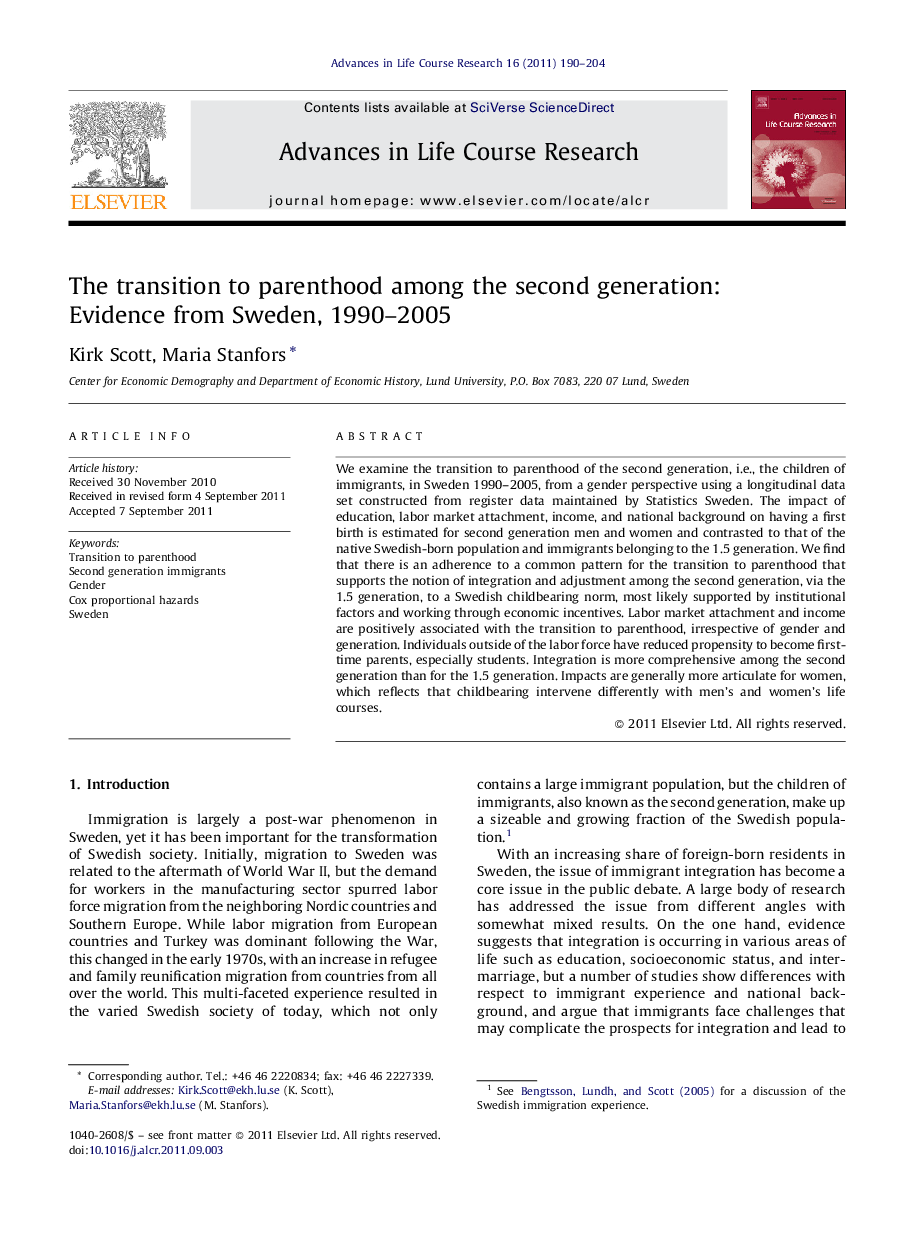| Article ID | Journal | Published Year | Pages | File Type |
|---|---|---|---|---|
| 312985 | Advances in Life Course Research | 2011 | 15 Pages |
We examine the transition to parenthood of the second generation, i.e., the children of immigrants, in Sweden 1990–2005, from a gender perspective using a longitudinal data set constructed from register data maintained by Statistics Sweden. The impact of education, labor market attachment, income, and national background on having a first birth is estimated for second generation men and women and contrasted to that of the native Swedish-born population and immigrants belonging to the 1.5 generation. We find that there is an adherence to a common pattern for the transition to parenthood that supports the notion of integration and adjustment among the second generation, via the 1.5 generation, to a Swedish childbearing norm, most likely supported by institutional factors and working through economic incentives. Labor market attachment and income are positively associated with the transition to parenthood, irrespective of gender and generation. Individuals outside of the labor force have reduced propensity to become first-time parents, especially students. Integration is more comprehensive among the second generation than for the 1.5 generation. Impacts are generally more articulate for women, which reflects that childbearing intervene differently with men's and women's life courses.
